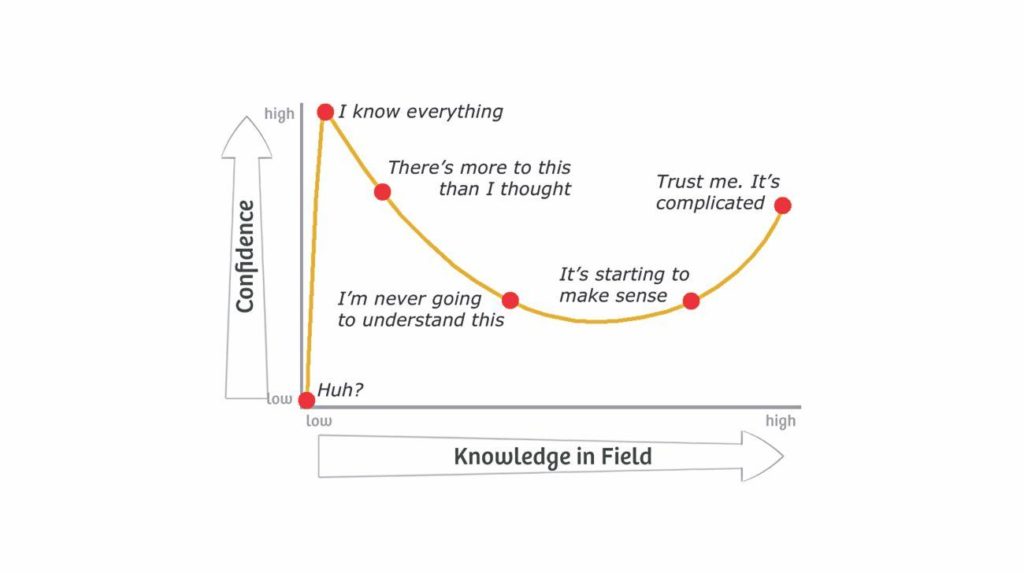
For nearly 15 years, a loose confederation of New Media pundits who I’ll call ‘techno-utopians’ claimed that because average people can now express themselves online, free of moderation by media companies, the quality of public discussions would improve and the best ideas rise to acclaim. Yet the reality has been quite different than that.
he reason why it’s different is the results of what psychologists term the Dunning-Kruger Effect in which too many average people believe their cognitive ability and wisdom is as great, and often greater, than experts about the topic being discussed. A truly intelligent average person will defer to established expertise because it is almost always arduously gained from first-hand knowledge and deep experience. By contrast, the less intelligent a person, the more dumb and unaware he is of what actual expertise entails. He will too often believe that his own opinions about the topic discussed are equal, or even superior, to those of experts’. (The very worst cases of this moreover can be motivated or reinforced by resentment he might feel against experts or other classes of people who’ve achieved more in their careers than he has his.)
The overall result is that the participation of so many of the dumber and unaware average people in online public discussions has not just lowered the levels of discourse but too often spewed smogs of miasmic discord and disinformation into those discussions. Unwitting Techno-utopians be damned!
As the American biochemist and author Isaac Asimov remarked during 1980, “The strain of anti-intellectualism has been a constant thread winding its way through our political and cultural life, nurtured by the false notion that democracy means that ‘my ignorance is just as good as your knowledge.’ ” His remark was about his own nation, but is no less true throughout the online world 40 years later.
In social media, I am becoming apocalyptically weary of American plumbers who can expertly unclog a drain but who also purport to have expertise about the macro-economic impact on the EU of BREXIT; of used beer wholesalers who profess Constitutional law expertise; of used car salesmen, who though themselves untraveled, offer insights into the comparative structures of national healthcare systems here and abroad. Et. al. I’ll willingly accept their respective expertise about pipe water flow capacities, about alcohol-by-volume levels of brews, or about the suspension systems of 2003 Toyotas, but not about topics about which they don’t have any actual expertise. What most of them instead are doing is merely parroting the words or talking points of pundits, propagandists, or someone else they’ve recently met and liked.
Spare me! Would you prefer the expertise of a professional pilot in the cockpit when next you board an airline or that of a traveling salesmen? The expertise of someone who has culminated 20 years of continuous education and hands-on experience being certified as a licensed doctor or a greeter at Wal-Mart who likes to google medical information? To live in a high-rise apartment designed by a licensed architect trained in the science of load-bearing materials or a roofer who’s also part-time lifeguard at the beach?
If you’ve an opinion about a topic, offer it if you’ve actual experience and expertise. Otherwise, would you please wisely stay out of the way.